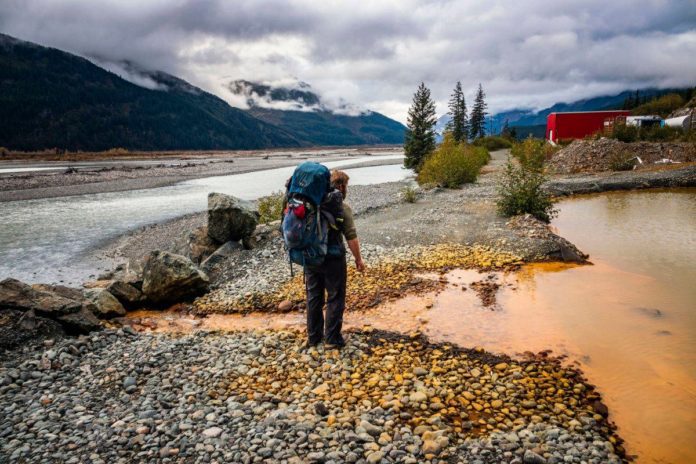
Salmon Beyond Borders, an Alaska-based environmental campaign, heralded a decision of the Canadian government to involve the International Joint Commission (IJC) in a transboundary pollution issue and urged President Joe Biden’s administration to also get involved.
Salmon Beyond Borders is a campaign working with fishermen, business owners, community leaders and concerned citizens, along with tribes and First Nations on both sides of the Alaska-British Columbia border to keep transboundary wild salmon rivers environmentally protected.
Salmon Beyond Borders cited a statement released by the Ktunaxa Nation — a First Nations Tribal council government comprising four Ktunaxa bands in southeast British Columbia — which said the U.S. and Canada, in partnership with the Ktunaxa Nation, have agreed to ask the IJC to make recommendations to address the mining pollution in the Elk and Kootenai rivers through a joint reference. The tribal body has been urging Canada and the U.S. to address these water pollution issues for more than a decade.
The reference also establishes an IJC study board that will bring experts and knowledge holders together to share knowledge and data in a coordinated, transparent program, the Ktunaxa Nation said. The effort is expected to achieve a common understanding of pollution within the watershed and the impacts it is having on people and species, which will in turn support recommendations to the governance body and the public, the Ktunaxa Nation said.
“For too long, the U.S. and Canada have stood by while our waters suffered,” said Michael Dolson, chair of the Confederated Salish and Kootenai Tribes. “We are encouraged by the federal governments’ change in direction and the progress that was achieved when we all worked together these past months. We will continue to work tirelessly to restore our rivers and the fish and wildlife that depend upon them. We’re at the beginning of what will likely be a long process, one that will require sustained effort from all governments involved.”
“British Columbia, Canada’s pollution-prone mining practices threaten the clean water, food security, and economy of every U.S. state unfortunate enough to be located downstream,” said Breanna Walker, director of Salmon Beyond Borders. “We’re thrilled that, with the reference of the Elk-Kootenai River to the International Joint Commission, the ongoing contamination of the transboundary Canada-Montana Elk-Kootenai is finally on the path to being addressed. Enforceable protections established by impacted communities and Tribes need to be in place for these glacial salmon rivers before our fish and birds begin suffering deformities, too.”
The Alaska congressional delegation has for years called for binding protects for shared transboundary rivers. Walker also noted that Sen. Lisa Murkowski, R-Alaska, sent a recent letter to Biden urging the U.S. to pause support for Canadian mines until an international framework is established for Canada-Alaska transboundary rivers. Southeast Alaska municipalities and Tribes are calling for an immediate and temporary pause on Canadian mining activity along shared salmon-rich rivers and a permanent ban on mine waste dams, which Salmon Beyond Borders contends are prone to failure.













